Anwar Ibrahim cancels his trip to Australia. (Photo: AFP)
My comments on Anwar Ibrahim cancelling an upcoming trip to Australia amidst a swirling sex video scandal have been included in an article by Amanda Hodge in The Weekend Australian.
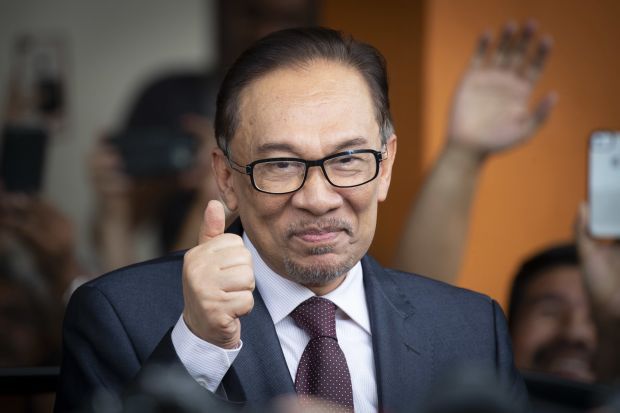
Anwar Ibrahim cancels his trip to Australia. (Photo: AFP)
My comments on Anwar Ibrahim cancelling an upcoming trip to Australia amidst a swirling sex video scandal have been included in an article by Amanda Hodge in The Weekend Australian.

(Photo: ANU College of Science)
I took part in a public lecture today presented by the ANU College of Science as part of the ‘Talanoa Dialogue’, a global forum where climate experts, civil society and governments discuss climate action solutions and how to best meet the challenges of implementing the Paris Climate Agreement.
I spoke alongside Mr Patrick Suckling, Australia’s Ambassador for the Environment; H.E. Mr Luke Daunivalu, Fiji’s High Commissioner to Australia; Mr Rafal Jarosz, First Counsellor responsible for economic affairs for the Embassy of the Republic of Poland in Canberra; Dr Jane Curnow, Australian Centre for International Agricultural Development; and Ms Rachel England, a PhD student at the ANU who is learning from Indigenous peoples (mostly women) their ways of sustainable living.
Learn more about the Talanoa Dialogue through the UN Climate Change website.
Talanoa is a traditional word used in Fiji and across the Pacific to reflect a process of inclusive, participatory and transparent dialogue. The purpose of Talanoa is to share stories, build empathy and to make wise decisions for the collective good. The process of Talanoa involves the sharing of ideas, skills and experience through storytelling.
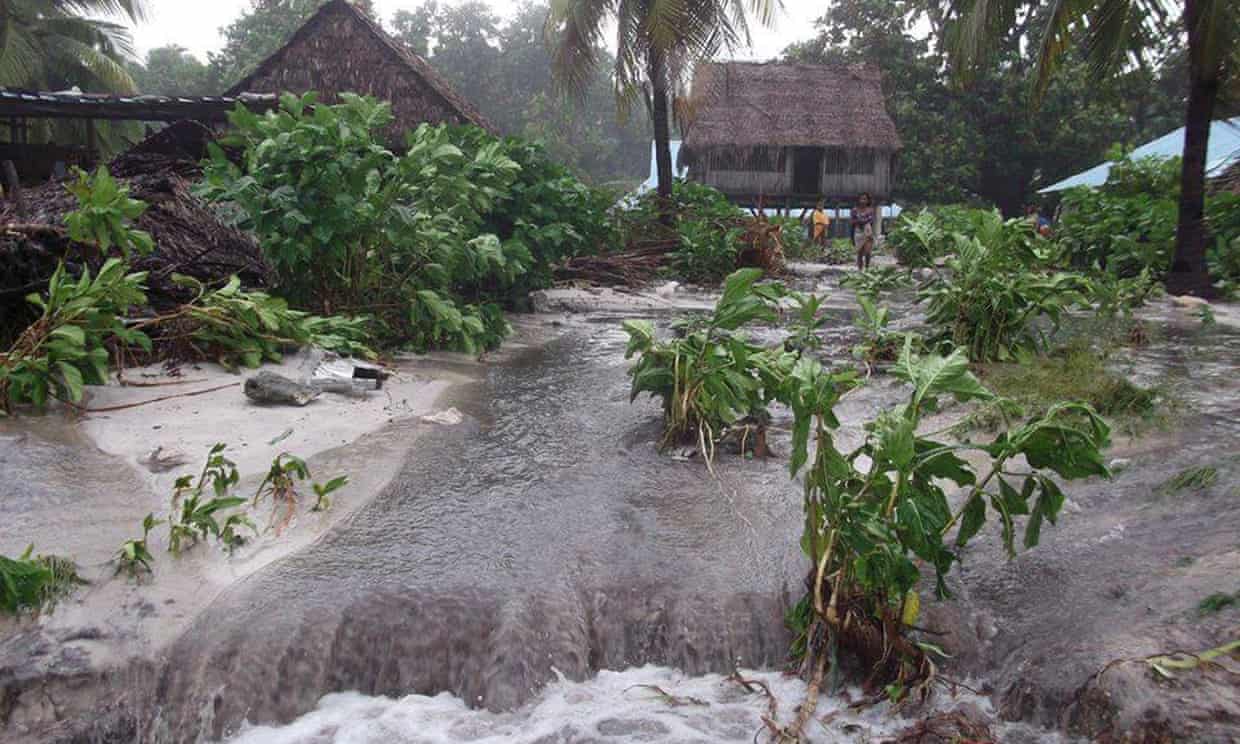
Cyclone Pam tearing through Kiribati in 2015 (Photo: Mike Roman/Red Cross Australia/EPA).
Another comment, this time for a piece by Paul Karp in The Guardian that covers a recently released internal government report which found that Australia’s climate action policies have been derailed since 2013. I pointed out that before then, DFAT’s climate action initiatives were starting to take off, but then climate objectives were “stripped out and investments closed down”. I also mentioned that:
“After five years, it is only now that there are early signs of recovery and climate change is being considered as a more important component of the aid program. Compared to our allies, like the UK, we are now playing catch-up.”
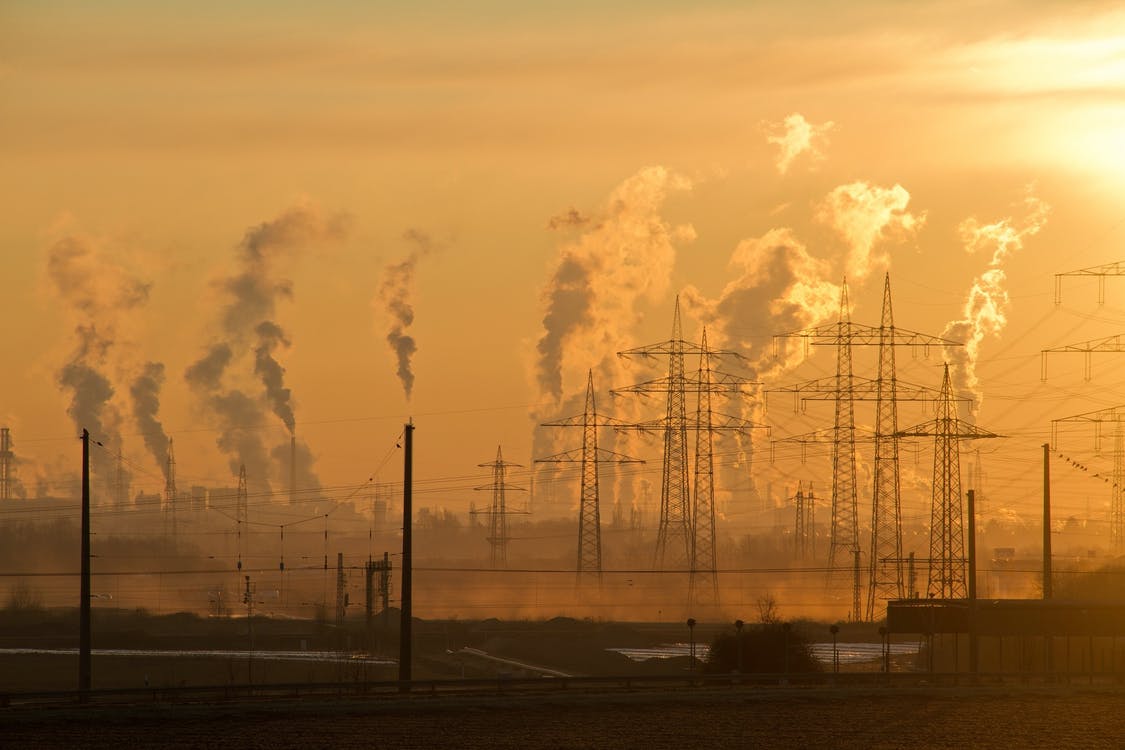
Follow this link to read a timely and significant report prepared by the Australian Government’s Foreign Affairs, Defence and Trade References Committee, released on 17 May 2018.
I gave expert advice in my capacity as Development Economics Adviser in the Australian Council for International Development; you can find some of my contributions on pages 77 and 84.
ACFID’s submission to the inquiry is available here.
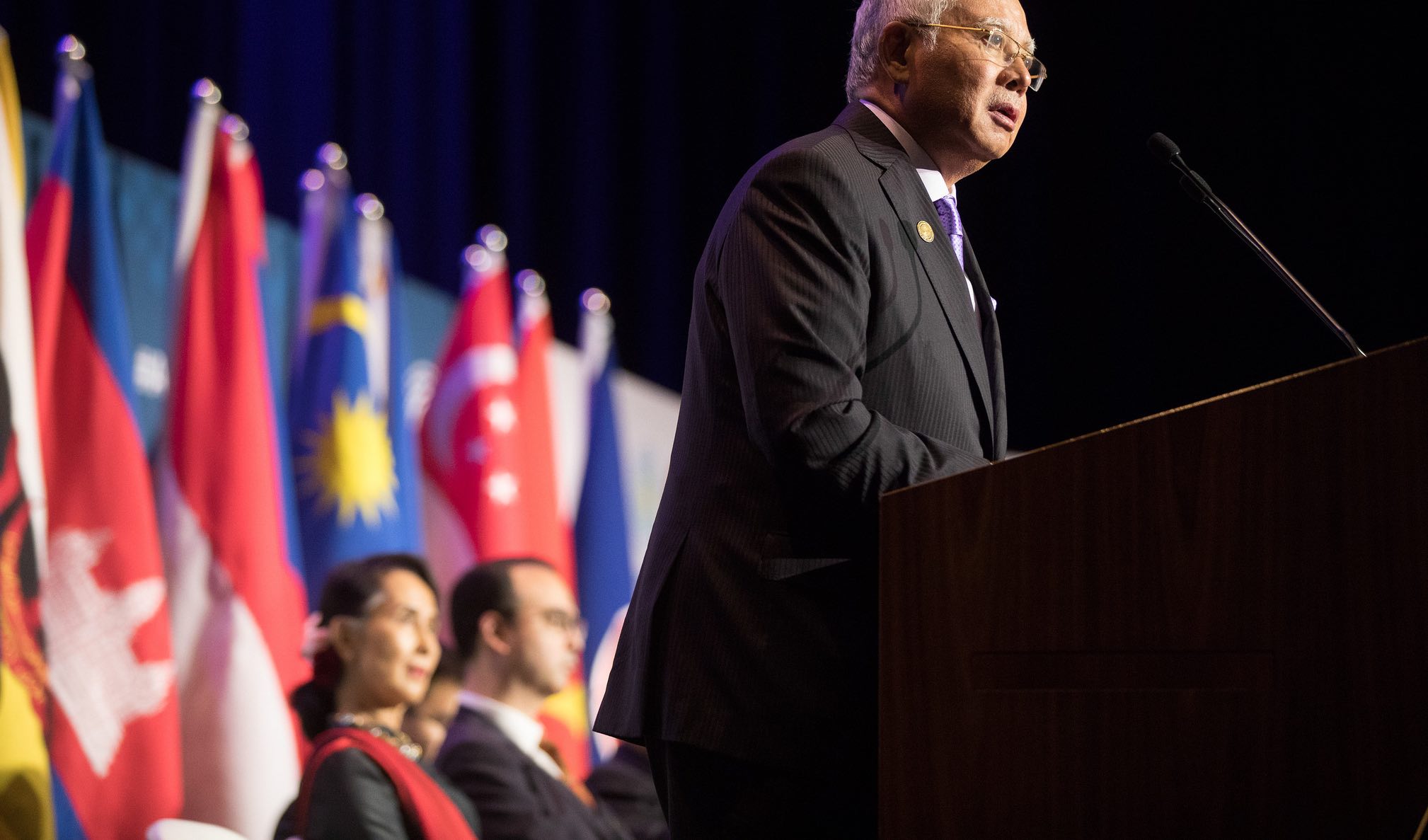
Malaysia’s Prime Minister Najib Razak (Photo: ASEAN-Australia Special Summit 2018/Flickr)
An article I wrote on Malaysian social media’s response to Najib’s performance at the ASEAN-Australia Summit this month has been published in The Interpreter.
Najib makes electoral hay from ASEAN-Australia Summit
“Cak!” says the Malaysian meme circulating on Twitter since Monday. The Malay expression is often used with children, and means something like “Surprise!”, or, better, “Peekaboo!” In the background is a press photo from the ASEAN-Australia Special Summit which took place in Sydney on the weekend. In the photo, a smiling Malaysian Prime Minister Najib Razak stands shaking hands with an equally cheerful Australian Prime Minister and welcoming host Malcolm Turnbull.
The meme also features, and is a response to, an interview broadcast on ABC television’s The World the day before the summit, during which Malaysia’s former prime minister, now opposition leader, Mahathir Mohamad argued that Turnbull “should stay away from him [Najib]”
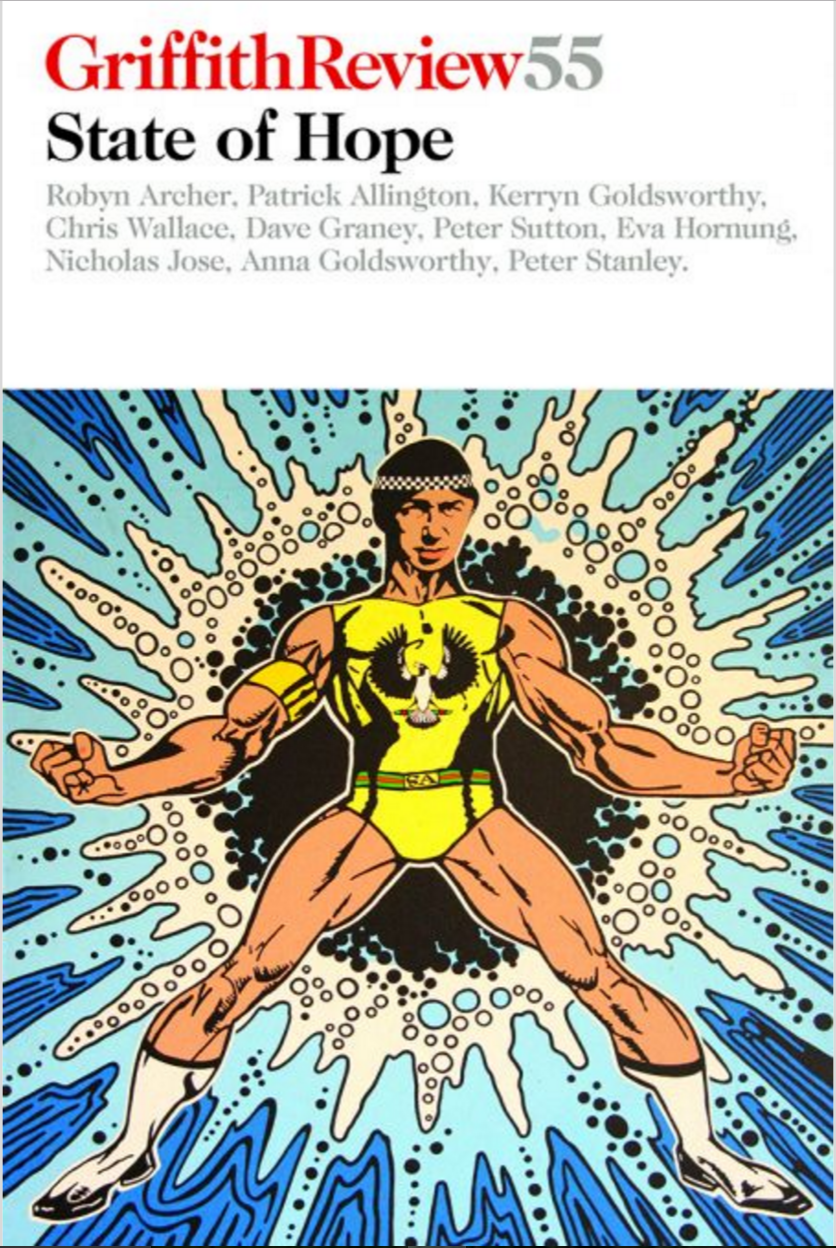
Griffith Review has unlocked an essay of mine that it first published in 2017, discussing the South Australian state government’s desire to internationalise SA – both economically and culturally – by stepping up its engagement with Asia. It also explores how well-intentioned, but ultimately clumsy, attempts to be more ‘intercultural’ reveal the government’s lack of cultural fluency and an unhelpful and patronising tendency towards ethnic reductionism.
‘SO WHAT? THERE’S no story here,’ the marketing consultant snapped down the phone. ‘I mean, bloody hell, the premier’s forever banging on about Asia, and everybody’s heard it all before.’
Welcome to South Australia, a state working hard to internationalise itself so that it might survive its painful economic ‘transition’ now underway. As part of this effort, Premier Jay Weatherill is, indeed, forever banging on about Asia.
Like other state and federal leaders, Weatherill has made it part of his job to talk up Asian engagement in a way that reflects the region’s transformation over the past forty years. As a result, the word ‘Asia’ now carries new meanings in Australian public debate, shifting from simply a place where cheap goods and workers can be accessed to a place where the world’s new rich also happen to live, ready to buy our stuff and invest in our economy. On a national scale, our economy is already so deeply enmeshed with Asia that the region can no longer really be thought of as ‘foreign’, thanks to increased trade, investment and migration to Australia.
The marketing consultant had obviously written up this sort of thing too many times before. Still, I needed her to do it again. I was convening an event called InterculturAdelaide, a policy outreach day in the Ninth International Convention of Asia Scholars that Adelaide hosted in 2015. I was serving on the conference organising committee as secretary of the Asian Studies Association of Australia.
The government of South Australia had provided strong support for the event, via direct grants and indirect subsidies, and even some help with marketing. The premier spoke on the keynote panel I hosted, and issued a call for South Australians to move beyond a basic passive tolerance for cultural diversity to embrace ‘interculturality’. ‘Citizens of an intercultural society,’ Weatherill said, ‘would be open and outward looking in their orientation to the world.’ They would aim to ‘truly understand different cultures and beliefs’, including with the peoples and cultures of Asia in particular, and ‘seek to engage with these cultures on various levels’. This engagement would underpin not only our successful pursuit of economic goals, but also allow us to develop an ‘ethos’ guiding positive relationships with each other.
The premier, along with others on the state’s political scene, is serious about encouraging such forms of engagement. Nevertheless, a certain economic reductionism can often creep in to the South Australian discussion about Asia – especially in its corporate and bureaucratic registers. This reductionism is directly related to the state’s economic problems, which, for decades, have been accompanied by a demonstrable demographic decline. As part of its campaign to internationalise, South Australia is looking for more new migrants, drawing in part on its international student pool, and is prepared to offer sponsorship in order to retain them. As a result, the fastest-growing migrant groups in this state are Asian, and SA has begun to display a pattern of cultural diversity – along with an increasingly Asian profile – that is broadly similar to that of the nation as a whole.
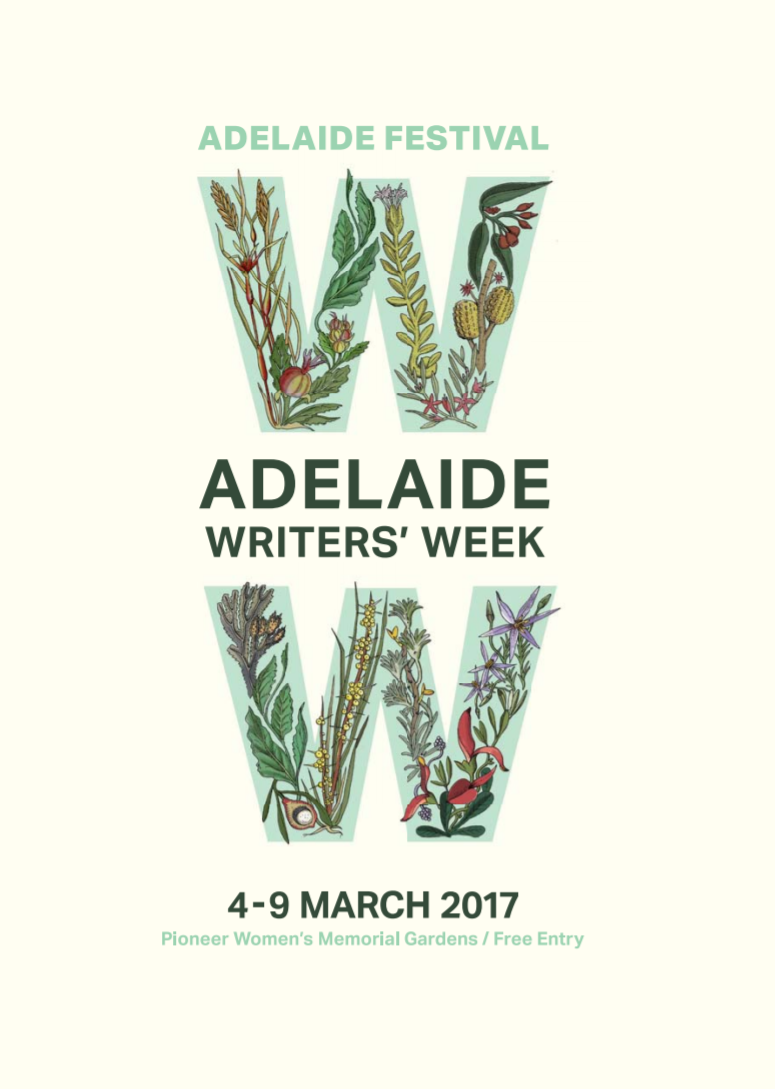
I’m speaking on the Griffith Review panel at Adelaide Writers’ Week, as one of the authors featured in Issue 55: ‘State of Hope,’ focused on South Australia.
My panel is at 12pm on Wednesday 8 March, on the West Stage. More details are available on the Writers’ Week program.
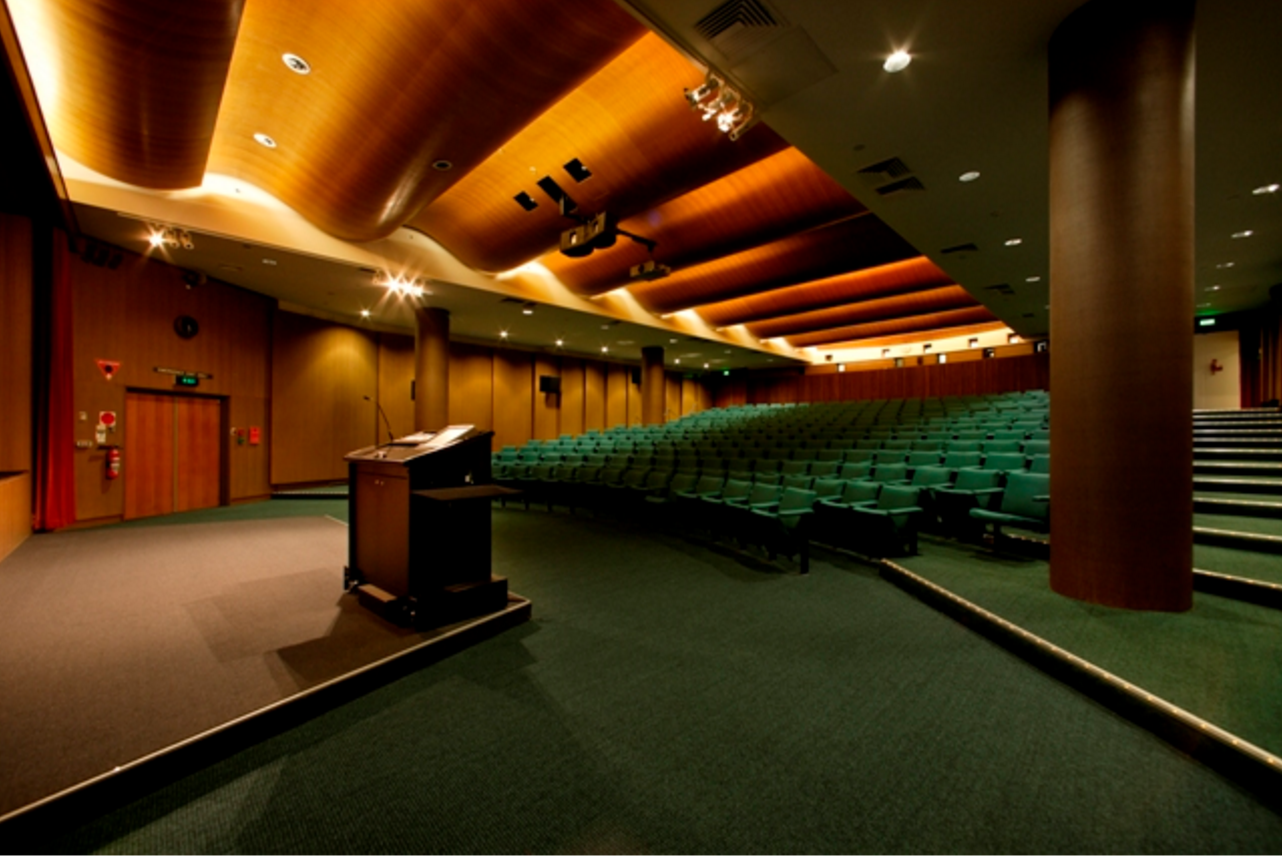
Image: National Library of Australia.
I’m speaking on the Griffith Review panel at the National Library of Australia, as one of the authors featured in Issue 55: ‘State of Hope,’ focused on South Australia.
The panel is at 6pm on Tuesday 21 February, in the Theatre on the Lower Ground Floor. More details are available from the National Library.

I’ve had an essay published in Griffith Review, in a special issue called ‘State of Hope’, focused on South Australia as a testing ground for government-led social reform since the era of former Premier Don Dunstan.
I haven’t been able to participate in any of the nostalgia for South Australia’s past, having only arrived just as Mike Rann was replaced with Jay Weatherill. All the same, my essay addresses contemporary possibilities for new rounds of social reform, in this case in relation to how state governments “manage” the growing cultural diversity of their populations through the policy framework we refer to as multiculturalism.
The essay reflects on my experience organising InterculturAdelaide, a policy co-design workshop I convened in 2015, and of navigating the multicultural arena and the way it insists on assigning non-white Australians within discrete and bounded cultural silos. These silos are then targeted by political parties in their competitive quest to mobilise each cultural “community” as a supportive political constituency. Yet surely a focus on equitable interaction across purported cultural boundaries is a better approach for equipping Australians to navigate their own society and their increasingly multipolar region?
The essay, ‘Intercultural Futures: The Fraught Politics of Multiculturalism,’ is available for purchase from Griffith Review.
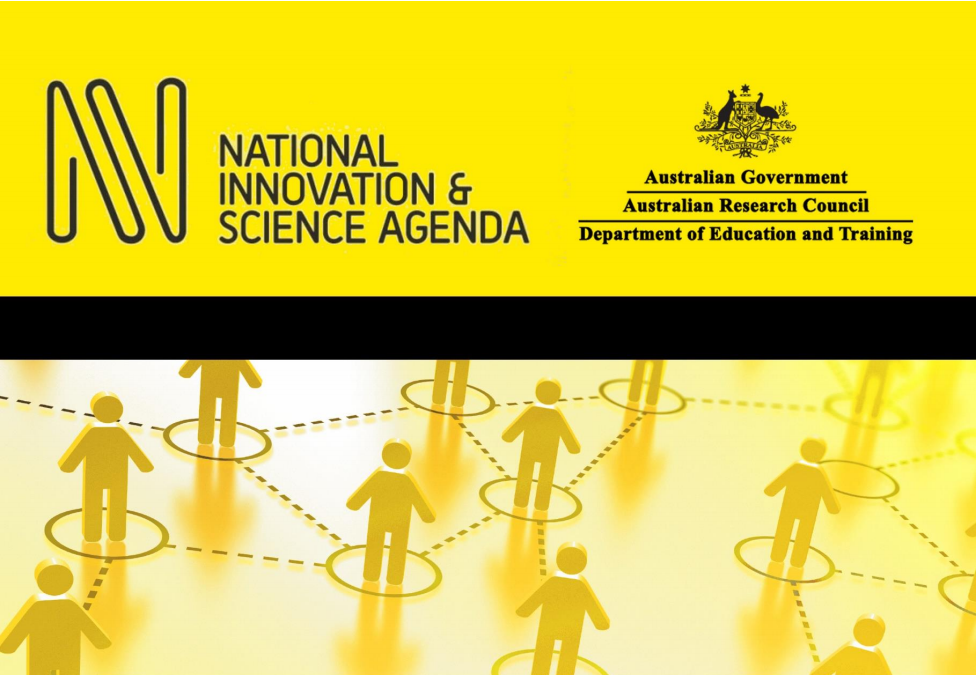
Image from the cover of the ARC NISA consultation paper.
I’m on a working group for the Asian Studies Association of Australia (ASAA) that has submitted advice to the Australian Research Council (ARC) on its pilot engagement and impact assessment exercise scheduled for next year. The exercise forms one component of the Australian Government’s National Innovation and Science Agenda (NISA), and earlier this year the ARC issued a consultation paper outlining its aims. The advice submitted by the ASAA working group argues that the ARC must define “engagement” in a manner that includes the Asian region, and that “impact” cannot be measured in terms of income alone.